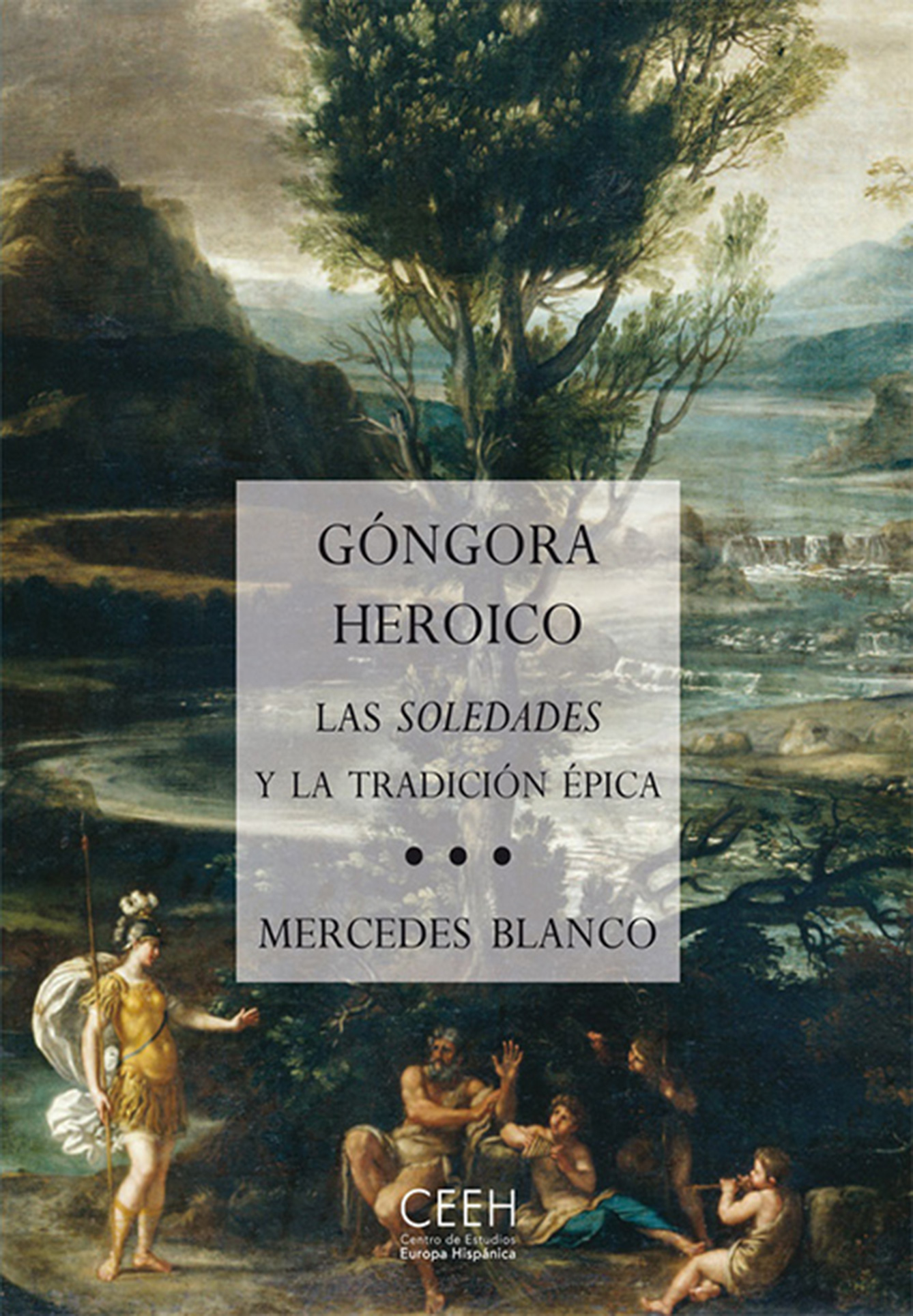In Góngora’s Soledades, a shipwrecked young nobleman spends four days roaming a hospitable rural world that lives in a joyful and unalterable peace. At first sight this work appears far removed from the epic genre and yet Mercedes Blanco, in a study that is practically unprecedented and unparalleled in earlier critiques, shows that this poem may be considered the Andalusian poet’s response to what Torquato Tasso had termed “heroic poem”.
This fascinating dialogue shows Góngora’s work to be related to that of Pontano, Poliziano, Sannazaro, Ariosto and Torquato Tasso, considering Renaissance readings of Homer to be the common background of classical epic poetry. Góngora found in the poetic language of Homer techniques that were conducive to a writing that presents the world as a landscape in a sense close to that of painting. Equally reminiscent of epic tradition is the “discourse on navigation”, a fragment of the Soledad primera which includes a paradoxical world map without place names and provides a summary of the meditative exercises stemming from the geographical revolution of the Modern Age.
The creative operation from which the poem springs may be described as a shift of the heroic feat from an action told to the actions of reading and writing, through the invention of a language full of adventures and risks. In an exercise that requires all the devices of his imagination and intelligence, the reader of the Soledades is thus given a glimpse of war, its glory and its calamities as if through transparency, beneath a radiant image of peace.
Mercedes Blanco is Professor of Spanish Literature at the Sorbonne. She has written more than a hundred studies and essays on Golden Age literature, especially Gracián, Quevedo and Góngora, in which she deals with aesthetic and formal questions, combining the task of unravelling details of the text with an examination of wide-ranging theory and historical contexts. Prominent among them are Les rhétoriques de la pointe. Baltasar Gracián et le conceptisme en Europe (Paris, 1992) and Góngora o la invención de una lengua (León, 2012).
“Las casi mil páginas que juntos ofrecen los volúmenes Góngora o la invención de una lengua y Góngora heroico pueden verse como la aportación hermenéutica más relevante sobre la poesía barroca hispana y la estética de la agudeza de los últimos veinte años”, Jesús Ponce Cárdenas, Criticón
“It is very difficult to do justice to Blanco’s erudite and monumental book in a few lines. Her writing is both dense and didactic, precise and beautiful, and takes the reader by the hand through the vast gallery of cultural references that contributed to the crafting of the Soledades“, Rodrigo Cacho Casal, Bulletin of Spanish Studies
“Como Dámaso Alonso y Robert Jammes con anterioridad, Mercedes Blanco modificará el modo en que leemos la obra más personal de Góngora y una de las más originales del Barroco literario español”, Antonio Rojas Castro, Iberoamericana
“There is so much to admire in Góngora heroico. Las Soledades y la tradición épica, so many instances of perceptive readings, that a review of this length cannot, unfortunately, do justice to it all. One can only urge all those interested in Early Modern Spanish poetry, art, cartography, indeed culture generally, to go out and buy this book”, Trevor J. Dadson, Hispanic Research Journal
“Un hito fundamental en la recepción crítica de la obra gongorina […] por ofrecer una clave interpretativa de un poema tan complejo […] como las Soledades“, Giulia Poggi, Romanische Forschungen
“Un libro valioso, resultado de muchos años de estudio y de reflexión sobre los temas más complejos de un autor complejo: un libro valiente, con una propuesta osada y una elaboración ambiciosa; un libro importante, en que los acuerdos y los desacuerdos son una invitación a pensar, a revisar lugares comunes y a releer a Góngora con los ojos de un humanista de saberes enciclopédicos”, Martha Lilia Tenorio, Nueva Revista de Filología Hispánica
“Mercedes Blanco es capaz de aportar nuevos matices a viejas cuestiones que la crítica literaria consideraba inamovibles; algo que sólo se puede hacer con grandes dosis de erudición y rigor, pero también con intuición y sensibilidad”, Cèlia Nadal y Antonio Rojas Castro, Mélanges de la Casa de Velázquez
“No encontrará el lector sabiduría inerte en este Góngora heroico, sino saber que ilumina con nueva perspectiva el sentido de versos y pasajes de las Soledades y su intención global”, José Manuel Rico García y Luis Gómez Canseco, Studia Aurea
“Como Góngora, Mercedes Blanco recoge todo el legado de una tradición crítica, lo desmenuza y reconstruye para fundirlo con el resultado de un riguroso análisis y unas brillantes percepciones […]. Góngora planteó y llevó a la práctica la empresa heroica del poeta; esta obra nos lo evidencia y muestra, de paso, las posibilidades de la crítica para elevarse a una altura heroica”, Pedro Ruiz Pérez, Calíope
“À la fin du livre de Mercedes Blanco, le lecteur a la satisfaction d’avoir saisi la logique profonde de l’écriture des Solitudes, la raison d’être de ce poème et plus généralement, de l’écriture gongorine”, Marina Mestre Zaragozá, Dix-septième siècle

